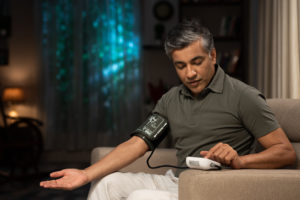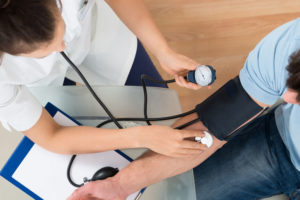- Understanding weight goals: Set realistic, achievable targets with your doctor for lasting success.
- Personalized health strategies: Get tailored advice based on your health and lifestyle.
- Monitoring progress regularly: Track changes with check-ins to adjust your plan effectively.
Developing healthy habits is essential for effective weight management. Balanced eating, regular exercise, and enough sleep help your body’s natural processes. These practices promote long-term well-being and reduce the risk of chronic health issues.
This article will walk you through five important questions to ask your family medicine doctor. These questions can help you better understand your options and set realistic goals. They can also address any underlying health concerns that may be impacting your weight.
How Does my Weight Affect my Overall Health?
Moving beyond the number on the scale is important for understanding how weight affects your health. This question makes the discussion personal. It allows you and your family medicine doctor to explain how your weight affects your health.
Excess weight can lead to many medical problems, as well. To be more specific, the Cleveland Clinic notes that obesity is linked to serious health issues. These include diabetes, fatty liver disease, and other heart and blood vessel diseases.
Understanding your personal risks is the first step to managing them.
- Blood pressure impacts: Extra weight can raise blood pressure and increase health risks.
- Cholesterol level effects: Too much weight can cause unhealthy cholesterol levels and harm heart health.
- Blood sugar connection: Weight control can help manage blood sugar and lower the risk of diabetes.
- Joint health concerns: Extra weight puts stress on joints, which can cause pain or arthritis.
- Chronic disease risks: Being overweight increases the chance of developing heart disease, cancer, and diabetes.
What Are Realistic and Healthy Weight Goals for Me?
It is easy to get caught up in generic weight charts or societal ideals. However, healthy weight management is about setting goals that are realistic and possible for you.
A family medicine doctor can help you create targets that fit your situation. These targets are based on your body type, medical history, age, and lifestyle.
Instead of aiming for one number, your doctor may suggest focusing on a percentage of weight loss. For example, depending on your situation, losing 5 to 10 % of your body weight can be a practical goal. Even this small change can greatly improve your health.
This method supports a long-term and sustainable approach. It also helps you avoid the frustration that comes from setting unrealistic goals.
What Diet and Exercise Changes Do You Recommend?
Once you have set your goals, the next step is to build a plan. Your family medicine doctor can give safe and reliable advice about nutrition. They can also suggest physical activities that match your individual needs.
This is important because any plan must be both safe and effective. It is better that it also considers your current health, medical conditions, and any physical limits.
Begin any new diet or exercise plan with realistic and lasting goals. According to the Mayo Clinic, physical activity does not always mean formal exercise. Even tasks you do at home count:
- Cleaning the house
- Making the bed
- Grocery shopping
- Mowing
- Gardening
Are There Other Factors That Could Be Affecting My Weight?
Weight management is complex and involves more than diet and exercise. If you have tried hard but still do not see results, other factors may be involved. Asking this question allows your doctor to take a closer and more complete look at your health.
Your doctor can explore various influences that might be affecting your weight. These may include side effects from medications. They may also come from hormonal problems such as thyroid disease or polycystic ovary syndrome (PCOS).
Finding these hidden problems is an important step. Solving them can help you overcome barriers and make real progress with your weight goals.
What Resources and Support Are Available to Help Me?
Embarking on a weight management journey does not mean you have to do it alone. Your healthcare provider is a central part of your support system. They can connect you with a broader network of care to help you succeed.
With that in mind, ask your doctor about additional resources they can recommend. This may include a referral to a dietitian who gives nutrition advice. It may also be a physical therapist who builds a safe exercise plan.
They may also guide you to local support groups, wellness programs, or tools that keep you motivated. Having a strong support system helps you stay committed and handle the challenges of long-term health changes.
Tips for Maintaining a Healthy Weight
Maintaining a healthy weight is a gradual and ongoing process that requires consistent effort and mindful choices. Below are some practical strategies that can be applied in daily life to support long-term success:
Practical Steps and Strategies for Daily Life
- Eat Balanced Meals: Focus on incorporating a variety of whole foods for optimal nutrition.
- Stay Physically Active: Engage in regular exercise to boost metabolism and overall health.
- Practice Portion Control: Keep meal sizes moderate to avoid overeating.
- Stay Hydrated: Drink plenty of water to support bodily functions and reduce unnecessary snacking.
- Prioritize Sleep Quality: Ensure adequate rest to maintain energy and regulate appetite.
Family Medicine Doctor for Weight Management in Wellington, FL
Talking with a family medicine doctor about weight management is a strong step toward improving your health. By asking these five questions, you can work with your family medicine doctor to create a personalized plan. This plan will be safe, effective, and tailored to address your unique needs.
Remember, your family medicine doctor is your advocate and partner in this process. If you need trusted and compassionate care, Advanced Medical is here for you. Call us at (561) 434-1935, or use our online appointment request form to request a consultation.
We look forward to serving you!








